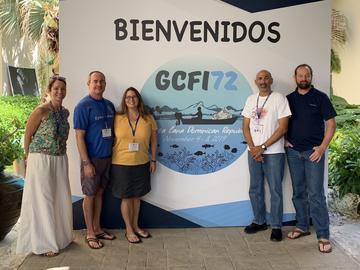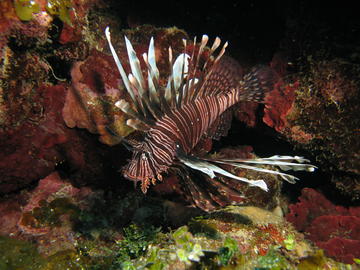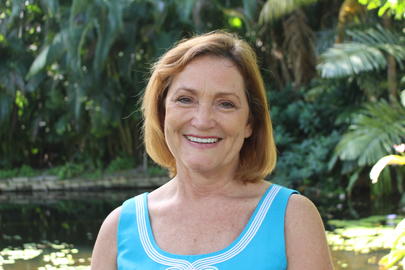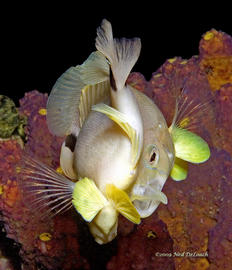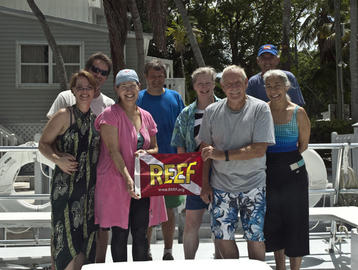REEF staff and partners just returned from the annual Gulf and Caribbean Fisheries Institute (GCFI) conference, held this year in the Dominican Republic. REEF’s programs and data were represented to the GCFI community by REEF Director of Science, Christy Pattengill-Semmens, and REEF Invasive Species Program Manager, Alli Candelmo, as well as our partners from Scripps Institute of Oceanography (Brice Semmens), Oregon State University (Scott and Selina Heppell), and Cayman Island Department of Environment (Bradley Johnson).
Current search
Search found 196 items
- tropical western atlantic
- (-) Remove e-News article filter e-News article
Exotic and invasive species are those that are not native to an area, but have been brought in through human activities. Non-native marine fishes can pose a major threat to fisheries, habitats, native species, and overall ecosystem function. The REEF Invasive Species Program uses conservation science, research, education, and community outreach to raise awareness about these threats. Here are four ways you can get involved:
We are very excited to welcome two new staff to the REEF Team - Bonnie Barnes and Ellie Place. Both joined our staff based at REEF Headquarters in Key Largo, Florida, in April 2017. Bonnie will serve as REEF's Development Manager, bringing a wealth of experience and passion to our fundraising program. Ellie came to REEF originally as a Marine Conservation Intern in 2016, and we are so happy she has decided to stay. She will be REEF's Conservation Coordinator of the Volunteer Fish Survey Program.
The first time we ever saw Hamlets spawn, Ned and I were on a liveaboard REEF trip in Belize. We were just starting serious work on the behavior book at the time and still unaware of just how rewarding dusk dives can be for fish watchers. Trying to squeeze in a fourth dive before dark, our group dropped in just before sunset, agreeing to be back up in time for dinner.
REEF members are at the heart of our grassroots marine conservation programs. Over 50,000 divers, snorkelers, students, and armchair naturalists stand behind our mission.
This month we highlight Mary Korte. Mary, and her husband Don, have been REEF members since 2001. Both are active surveyors, and Mary is a Level 3 surveyor in the TWA who has completed 284 surveys (all on snorkel!). Here’s what Mary had to say about REEF:
What is your favorite part about being a REEF member?
REEF Field Surveys offer a great introduction to fish identification for novice fishwatchers, and are a fun way for experienced surveyors to build their life list while interacting with fellow fishwatchers. The recent trip to Key Largo was no exception. REEF surveyors gathered in late August at Amoray Dive Resort for the Key Largo Field Survey and Coral Conservation trip. The trip was scheduled around the annual coral spawning that usually occurs in the Keys after the full moon of August.

